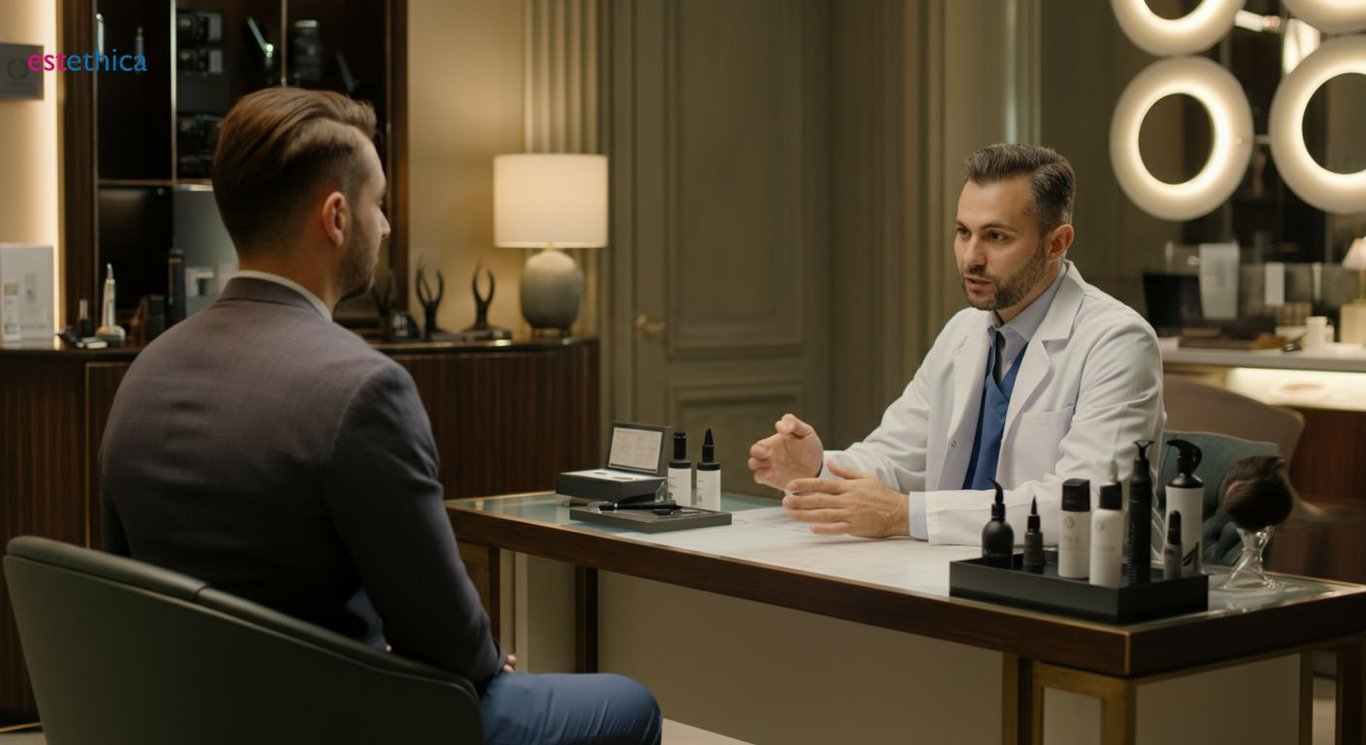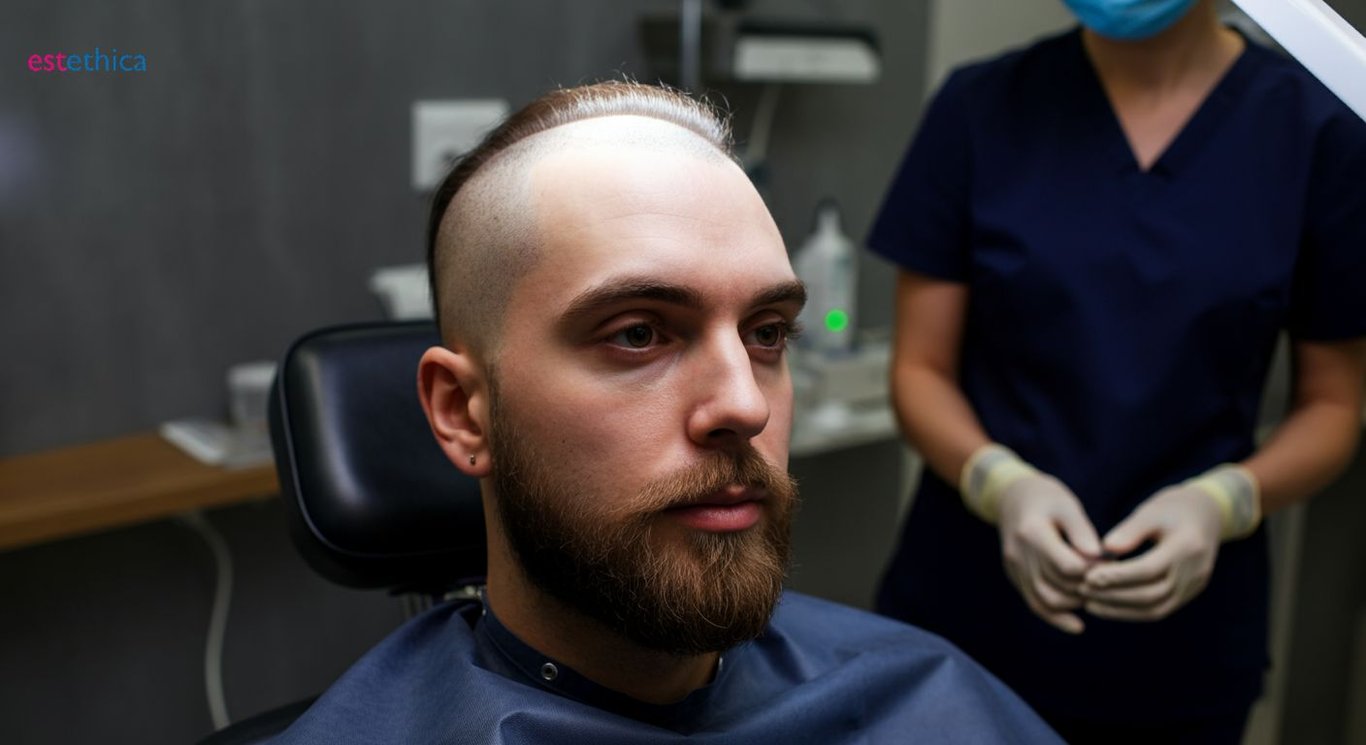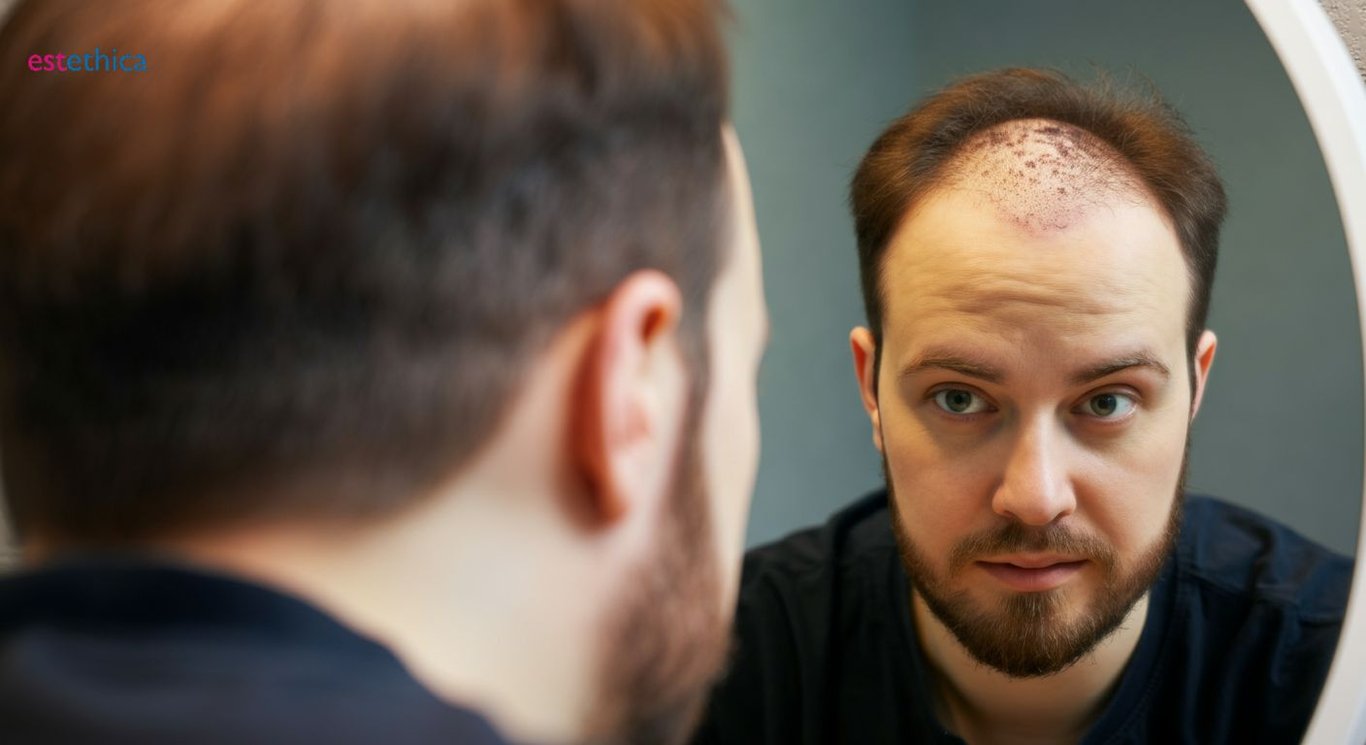Discover Hair Transplantation: Transform Your Look
Unlock the secrets of hair transplantation and see how it can enhance your look today!
Hair transplantation offers an extraordinary opportunity to regain your youthful appearance and boost your confidence. This procedure has gained popularity due to its effectiveness in providing natural-looking results. However, understanding the nuances of hair transplant surgery and identifying the best practices is crucial for successful outcomes. In this comprehensive guide, we'll explore what you can expect from hair restoration, debunk myths surrounding its permanence, and help you choose the right clinic for your needs.
Understanding Hair Transplant Surgery: What to Expect
Exploring Hair Transplant Techniques
Hair transplant surgery involves relocating hair follicles from a donor site to a recipient area. Two popular techniques are Follicular Unit Extraction (FUE) and Direct Hair Implantation (DHI). FUE involves extracting individual follicles, minimizing scarring and promoting natural growth. DHI, on the other hand, uses a specialized tool to implant hair directly, offering precision and density. Both methods are effective for hair restoration, catering to different needs and preferences.
Advantages of Hair Transplant Techniques
- Minimal scarring with FUE, enhancing aesthetic appeal.
- Natural hair growth patterns, ensuring seamless integration.
- Precision and density with DHI, ideal for targeted areas.
Post-operative care is crucial for optimal results. Technologies like laser therapy can enhance recovery and stimulate hair growth. For more insights, explore expert insights on hair transplant success.
Steps in Hair Transplant Surgery
- Consultation to assess hair loss and determine the best approach.
- Extraction of hair follicles from the donor area using FUE or DHI.
- Implantation of follicles into the recipient area, ensuring natural alignment.
Understanding these steps helps set realistic expectations for hair transplant surgery. Each phase is meticulously planned to achieve the best possible outcome, making it a viable option for those seeking hair restoration.

Exploring Hair Restoration: Techniques and Benefits
Innovative Hair Restoration Techniques
The field of hair restoration is continuously evolving, offering a variety of innovative techniques. Scalp micropigmentation is one such method, providing an aesthetic solution for those not seeking full transplants. This technique involves tattooing tiny dots on the scalp to mimic hair follicles, creating the illusion of fuller hair. It's particularly beneficial for individuals with thinning hair or those who prefer a non-surgical approach.
Benefits of Scalp Micropigmentation
- Non-invasive procedure with minimal recovery time.
- Cost-effective alternative to traditional hair transplants.
- Long-lasting results with low maintenance requirements.
Scalp micropigmentation can be a game-changer for those looking to enhance their hair's appearance without undergoing surgery. It offers a realistic and natural look, making it a popular choice among many seeking hair restoration solutions.
Understanding the Process of Scalp Micropigmentation
- Initial consultation to discuss desired outcomes and assess scalp condition.
- Application of pigment dots to the scalp, matching natural hair color.
- Follow-up sessions to refine and perfect the appearance.
This process ensures that the results are tailored to each individual's needs, providing a personalized approach to hair restoration. By understanding the nuances of scalp micropigmentation, individuals can make informed decisions about their hair restoration journey.

Is Hair Transplant Permanent? Debunking Myths
Factors Influencing Hair Transplant Permanence
Hair transplant permanence largely depends on several critical factors. The expertise of the surgeon is paramount; a skilled professional ensures that healthy follicles are transplanted effectively, promoting natural growth. Additionally, the type of hair transplant surgery, such as Follicular Unit Extraction (FUE), plays a role in the longevity of results. FUE is known for its minimal scarring and natural appearance, making it a preferred choice for many seeking hair restoration.
Key Considerations for Long-lasting Results
- Choosing experienced surgeons to enhance success rates.
- Adhering to pre-and post-procedure care for optimal outcomes.
- Selecting the appropriate technique, like FUE, for individual needs.
These considerations are crucial for achieving permanent hair transplant results. By understanding these factors, individuals can make informed decisions about their hair restoration journey, ensuring they receive the best possible care and outcomes.
Steps to Ensure Hair Transplant Success
- Conduct thorough research to find the best hair transplant clinics.
- Consult with specialists to determine the most suitable technique.
- Follow all recommended care instructions to support healing and growth.
By following these steps, individuals can significantly increase the likelihood of a successful and permanent hair transplant. This approach not only enhances the aesthetic results but also ensures the longevity of the transplanted hair, providing a lasting solution to hair loss.

Choosing the Best Hair Transplant Clinics for You
Evaluating Clinic Reputation and Expertise
When selecting a hair transplant clinic, reputation and expertise are paramount. Clinics like estethica, renowned for their innovative techniques, offer a blend of advanced technology and skilled medical professionals. This combination ensures that patients receive top-notch care and achieve satisfactory results. For instance, estethica's use of cutting-edge methods like Follicular Unit Extraction (FUE) and Direct Hair Implantation (DHI) highlights their commitment to excellence in hair restoration.
Key Factors in Choosing a Hair Transplant Clinic
- Clinic's reputation and patient reviews.
- Expertise and experience of the medical staff.
- Use of advanced technology and techniques.
These factors are crucial in ensuring a successful hair transplant experience. By prioritizing clinics with a strong reputation and skilled professionals, individuals can enhance their chances of achieving desired outcomes.
Steps to Identify the Best Hair Transplant Clinic
- Research clinics' reputations through online reviews and testimonials.
- Consult with multiple clinics to assess their expertise and approach.
- Evaluate the technology and techniques used by the clinic.
Following these steps can guide individuals in selecting the best hair transplant clinic for their needs. By focusing on reputation, expertise, and technology, patients can make informed decisions that lead to successful hair restoration outcomes.
Precision Hair Transplant Techniques: FUE and DHI
Comprehensive Hair Transplant Process for Lasting Results
Frequently Asked Questions
How long does the hair transplant procedure take?
When can normal activities be resumed after a hair transplant?
What are the main techniques used in hair transplant surgery?
Is hair transplant a permanent solution for hair loss?
How does scalp micropigmentation differ from traditional hair transplants?
Discover the path to 'Healthy Beauty' with estethica's expert care. Call now for your free consultation and take the first step towards a more confident you!
📞 Call for Your Free Consultation